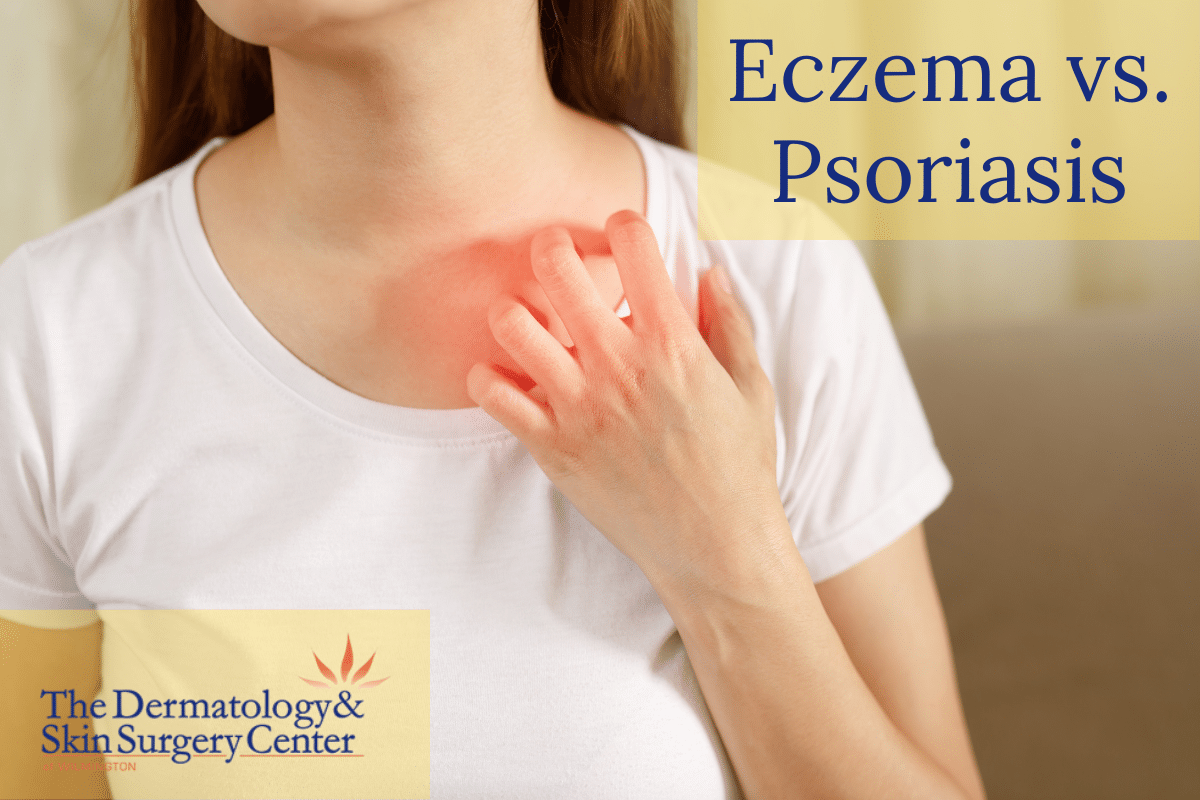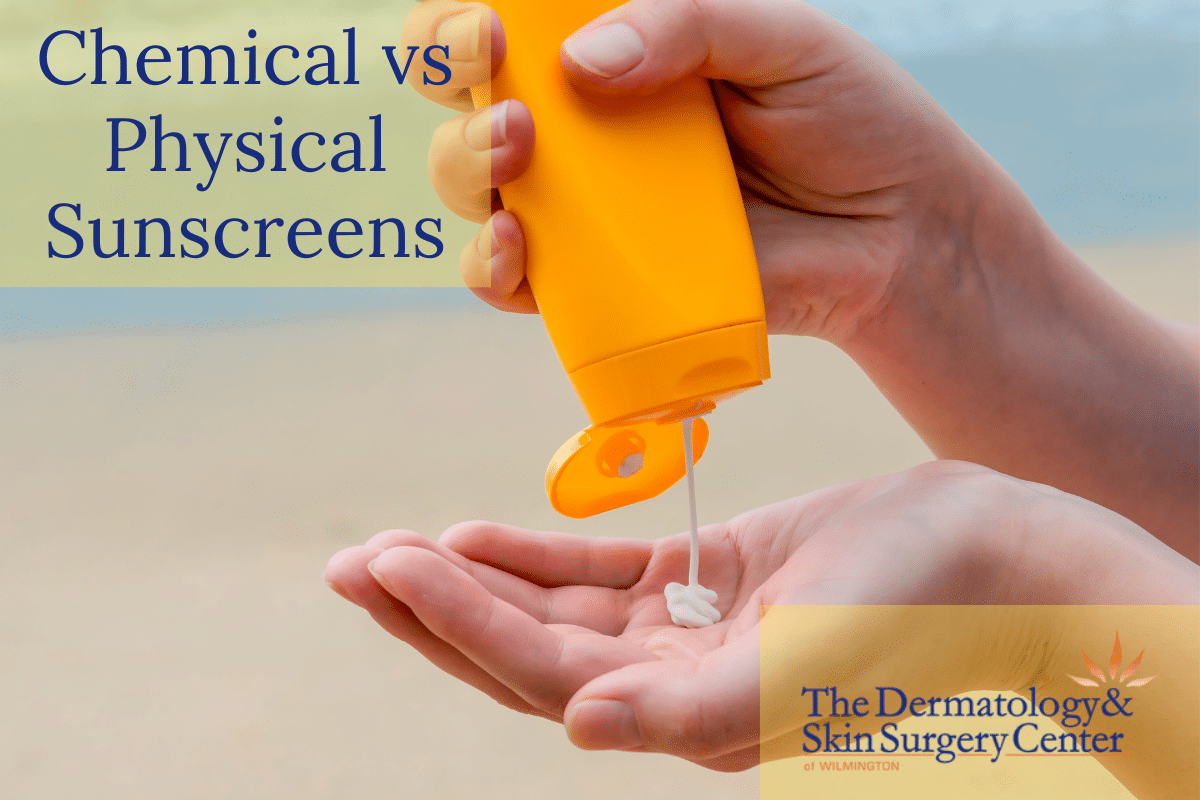As you browse the health and wellness section of your local drugstore or department store,…

Eczema vs. Psoriasis: What’s the Difference Between These Two Skin Conditions?
At The Dermatology & Skin Surgery Center of Wilmington, we understand how hard it can be to distinguish eczema and psoriasis from one another. In fact, many patients come into our dermatology clinic asking our experienced providers, “do I have eczema or psoriasis?” And “what’s the difference between the two?”
While these two common skin conditions present similar symptoms and can be triggered by many of the same internal and external factors, there are a few key fundamental differences between eczema and psoriasis.
We’re here to help you better understand the two skin conditions by clarifying their varying individual symptoms, what causes eczema and psoriasis, and how we treat each at our state-of-the-art dermatology clinic in Wilmington.
Key Differences Between Eczema and Psoriasis
What is Eczema?
Eczema is a chronic skin condition characterized by patches of dry, red, itchy skin. In severe eczema cases, it can cover the majority of the body, patches may become cracked and rough, causing the patient an immense amount of irritation and discomfort.
Those with eczema tend to be at a higher risk of developing several chronic, health-related conditions. This is otherwise known as “comorbidities,” or when two or more chronic illnesses or diseases exist in the body at the same time. These other health-related conditions include asthma, allergic rhinitis, food allergies, infections, and mental health conditions.
What is Psoriasis?
Psoriasis is a chronic skin disease that causes raised, red, scaly patches to appear on the skin. The severity of psoriasis can range from mild to severe, and is determined by how much of the body is covered. Mild cases of psoriasis are classified as affecting 3% or less of the body, moderate cases affecting 3-10% of the body, and severe cases affecting 10% or more of the body.
Individuals with psoriasis are more likely to develop systemic problems, including psoriatic arthritis, cardiovascular disease, metabolic syndrome, obesity, hypertension, dyslipidemia, and diabetes. Similar to eczema, this would be known as having comorbidities.
What Causes Eczema and Psoriasis?
Though eczema and psoriasis can present similar symptoms—patches of red, irritated, flaky skin—the primary difference between the two is in their main causes.
The Cause of Eczema
The cause of eczema is not exactly known but thought to be a combination of environmental triggers and genetics. Individuals with eczema tend to have an overactive immune system that responds to topical irritants and allergens, triggering inflammation.
Additionally, research has shown that some individuals with eczema have a mutation of the gene responsible for creating filaggrin. This is a key protein that helps our body maintain a healthy skin barrier. When affected or mutated, moisture can escape, allowing things like bacteria, viruses, allergens, and other unwanted invaders to enter the body.
The Cause of Psoriasis
The exact cause of psoriasis is still unknown to scientists. Research suggests that psoriasis is caused by a combination of environmental triggers, the immune system, and genetics, but this is not definite, as it is possible to develop psoriasis with no family history of the skin condition.
When it comes to psoriasis, there seems to be a strong connection between the immune system and inflammation. An overactive immune system sends inaccurate signals to the skin and mistakes healthy skin cells for damaged ones. This triggers the overproduction of skin cells, as the body tries to replace the “damaged” ones with healthy ones. As a result, skin cells build up on the surface to form patches of dry, scaly skin.
How are Eczema and Psoriasis Treated?
At The Dermatology & Skin Surgery Center of Wilmington, our personalized eczema treatment plans typically include a combination of treatment options designed to alleviate the symptoms of eczema and prevent future flare-ups. Treatment options often include OTC products, phototherapy, topical medications, and systemic medications.
Our customized psoriasis treatment plans involve identifying the type of psoriasis you have and utilizing a combination of treatment methods including topical medication, phototherapy, systemic medication, and lifestyle recommendations.
Find Eczema and Psoriasis Treatments in Wilmington, North Carolina
If you’re ready to find an effective treatment for your eczema or psoriasis or learn more about our board-certified dermatologist-recommended skin treatments, get in touch with the Dermatology and Skin Surgery Center of Wilmington. Call us at (910) 239-0419 to schedule your next dermatology appointment.



